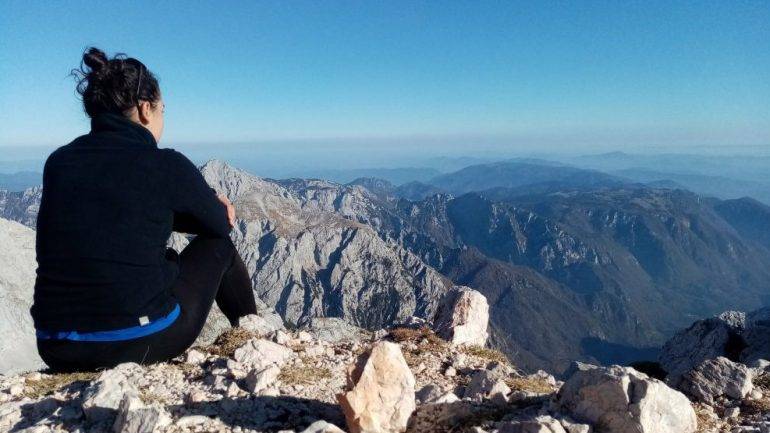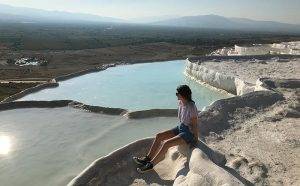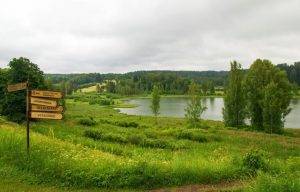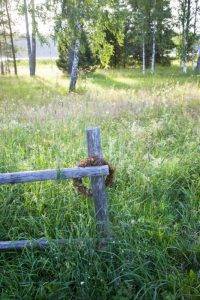Haste Makes Waste: What is Slow Travel?


- Posted by Raphael Pares
- Posted in SVI
SLOW TRAVEL: an alternative way of travelling
There we are. The world has slowly begun to progressively reopen and, soon, life will be returning to normal. Normal, really? Not quite. Just because this lockdown phase went well, doesn’t mean we can rush to the stations and airports again and hurry across the world! That would be an absurd thing to think! Yes, I know. We have dreamt of travel so much over these last months that we desperately want to catch up for the time we lost. So, quick! Let’s hop on a plane! Quick! Then on a train! Quick! We’ve got to travel more! Always quicker! There’s no more time to waste!
And what if, actually, there was more time to waste? What if the period we’ve just come through had something to teach us about the way we travel? What an excellent opportunity to discover a new trend that has grown bigger and bigger over the past few years. Let’s head for a new way of travelling that some people had already adopted a long time ago, way before the pandemic.

Slow Travel means travelling slowly. No kidding? I think we got that one. But what does “travelling slowly” actually mean? It means not giving in to the pressure and temptation to try and see everything in a minimum time. Quite the opposite, Slow Travel means taking our time in this society that often pushes us to keep rushing to make sure we never miss anything out. It means accepting to miss some things out to get more out of others.
The goal is to connect with the local community of the area we visit instead of discovering it only superficially. You try to understand its culture better, to get integrated in it, rather than taking a few pictures of the main monuments and then going back home without getting much out of it. Slow Travel is not about travelling longer (and thus spending more money), but about staying longer in the same place to discover it more in depth. So clearly, it is not a way of travelling reserved for the wealthiest, quite the contrary!
CONCRETELY, how to adopt Slow Travel?
 There are multiple ways to adopt Slow Travel. The idea is to question our vision of travel as well as the means of transport that we use. No more weekends abroad by plane! Make room for train-hiking! A mix of countryside trains and hiking, in order to discover some well-hidden rural treasures! Go hitchhiking and meet some really nice local people! (Well, that one kind of depends on the local culture, obviously! Don’t try it in the US!) Take out your old bike and ride the many European trails! Who knows what adventure they will lead you on? Or why not try out hiking: the epitome of Slow Travel? Could there be any better way to discover a place than by treading on its roads and paths?
There are multiple ways to adopt Slow Travel. The idea is to question our vision of travel as well as the means of transport that we use. No more weekends abroad by plane! Make room for train-hiking! A mix of countryside trains and hiking, in order to discover some well-hidden rural treasures! Go hitchhiking and meet some really nice local people! (Well, that one kind of depends on the local culture, obviously! Don’t try it in the US!) Take out your old bike and ride the many European trails! Who knows what adventure they will lead you on? Or why not try out hiking: the epitome of Slow Travel? Could there be any better way to discover a place than by treading on its roads and paths?
Slow Travel obviously means following some of our ecological and human convictions! By opposing consumerism and mass tourism, Slow Travel aims at making us live human adventures! Whether it is by spending time with other wanderers, meeting people through hitchhiking, chatting with newly met travellers over a beer, or going on a voluntary project! Because, yes, volunteering is perfectly adapted to this way of travelling. Is there any better way to meet people and learn the local culture? That is why the SVI offers projects that are in line with this vision of “in-depth” travel. Many of our local partner associations are ready to welcome you on their eco-farms, permaculture projects, etc. And it can be anywhere on the planet: castle renovation project in Germany with the association ICJA, English lessons for Vietnamese children with the association SJ Vietnam, and many more!
 One more example among plenty of others: the association EstYES can make you live two weeks in Estonia to take part in the activities of an eco-farm dedicated to beekeeping. Is there any better way to discover a country’s culture from the inside among local and passionate workers? By going there, you won’t only visit Estonia. You will discover its very heart.
One more example among plenty of others: the association EstYES can make you live two weeks in Estonia to take part in the activities of an eco-farm dedicated to beekeeping. Is there any better way to discover a country’s culture from the inside among local and passionate workers? By going there, you won’t only visit Estonia. You will discover its very heart.
The possibilities are numerous! So, don’t hesitate! Go for an alternative way of travelling!
